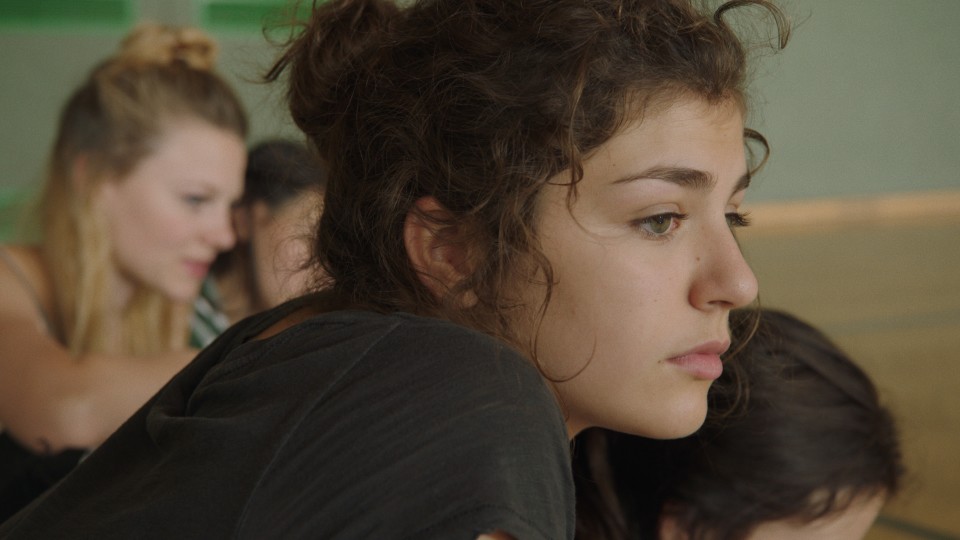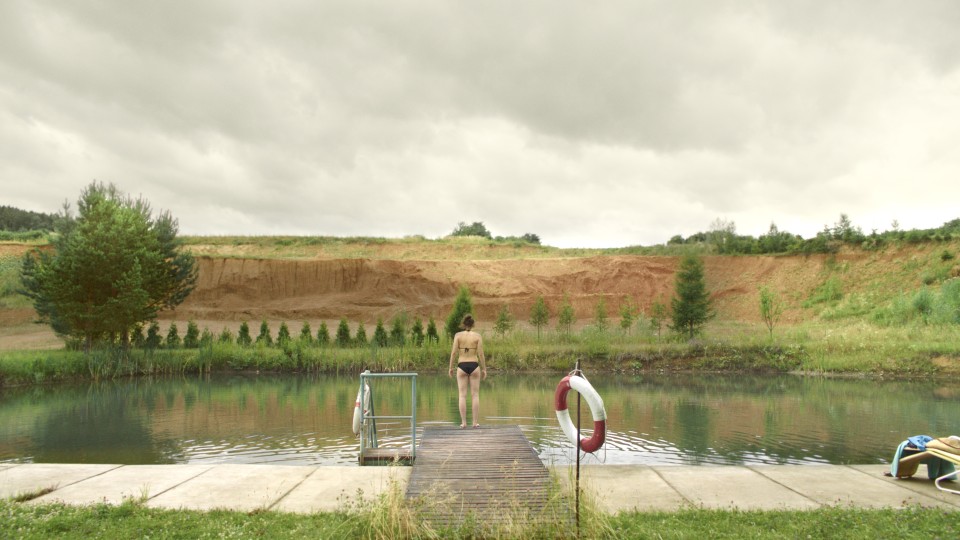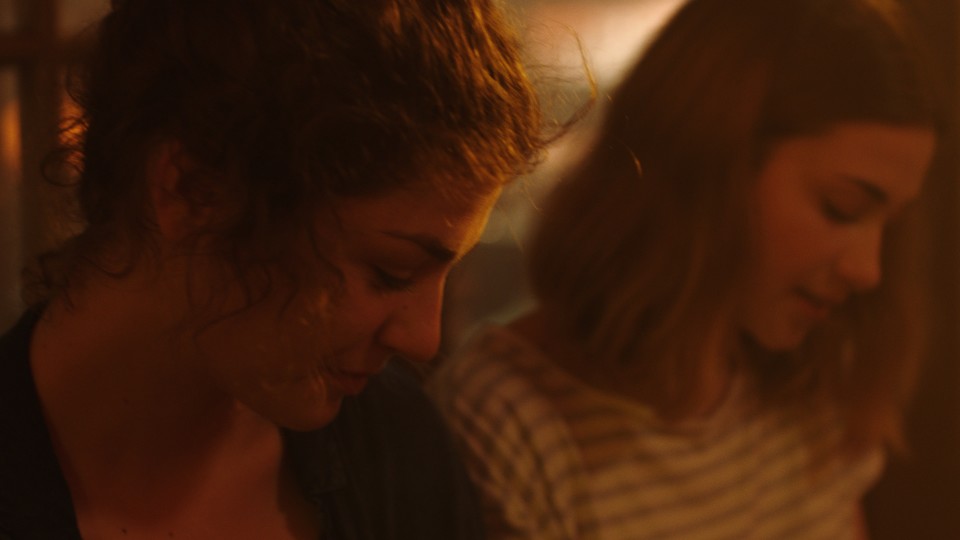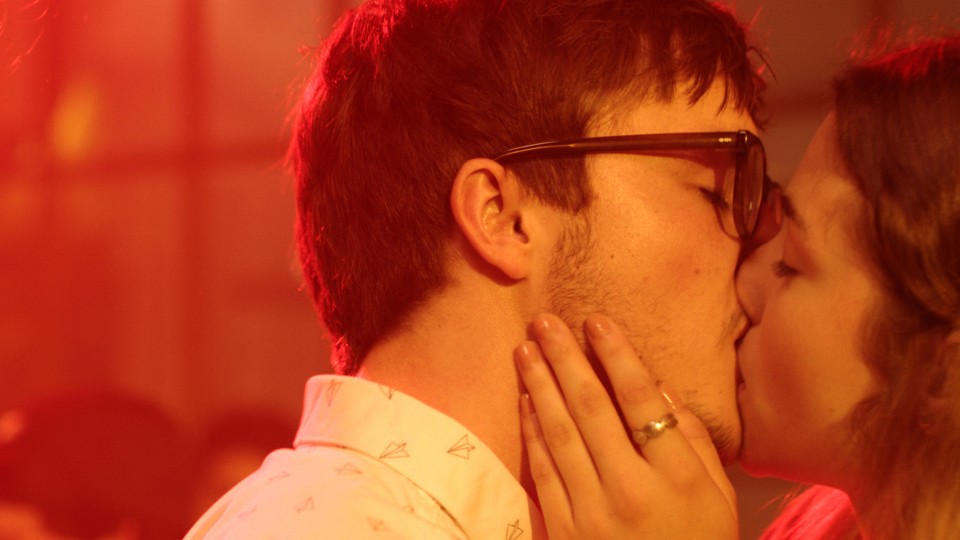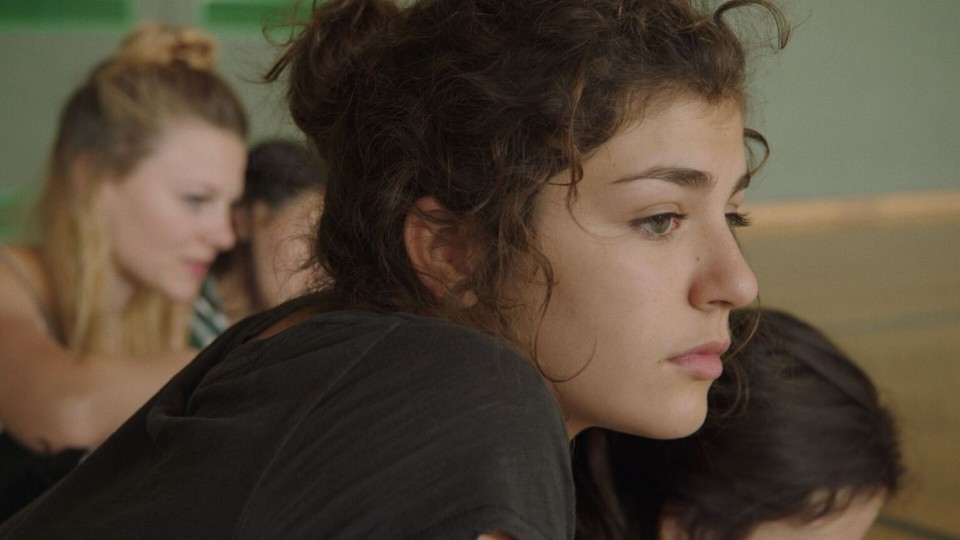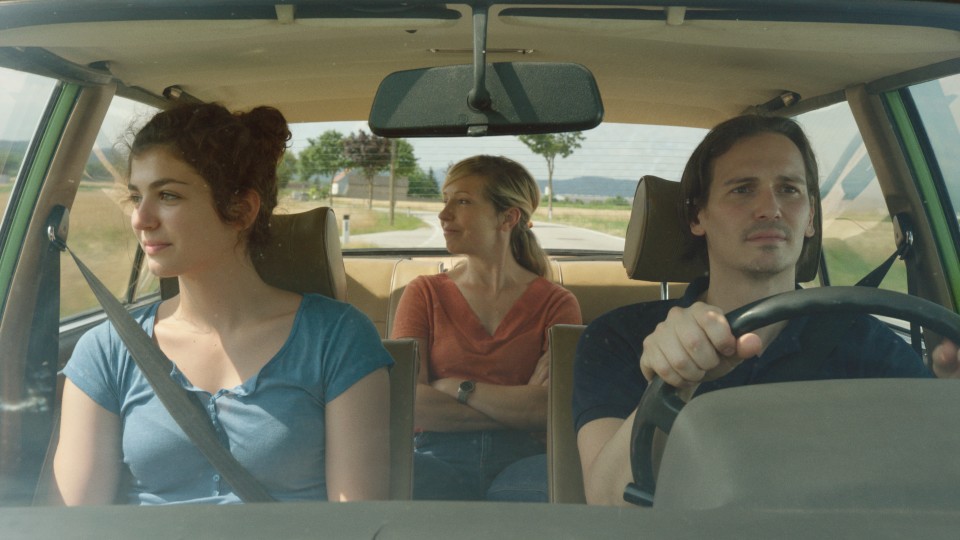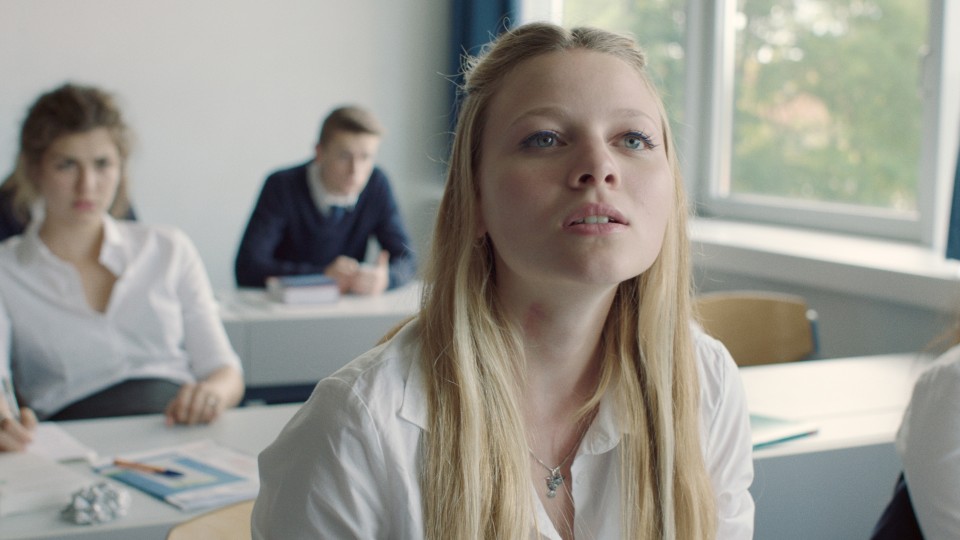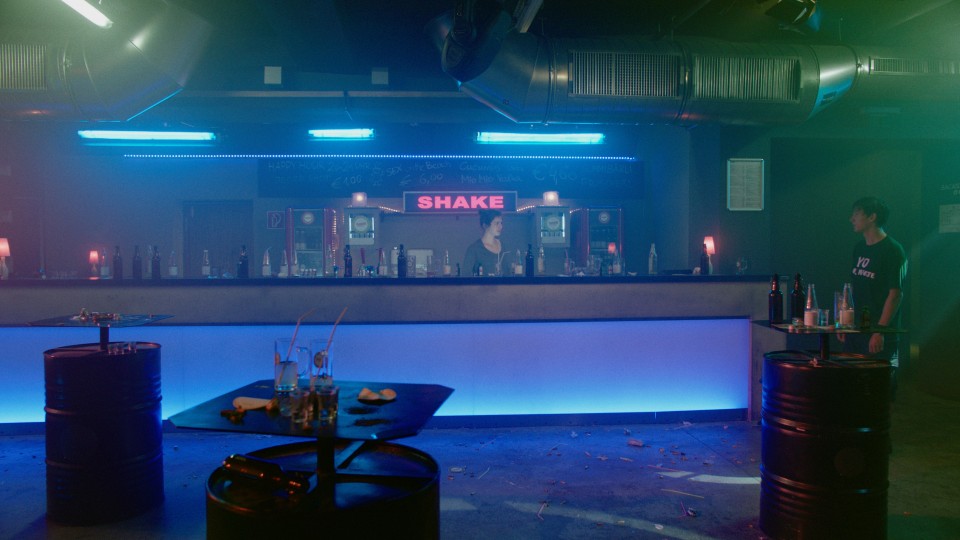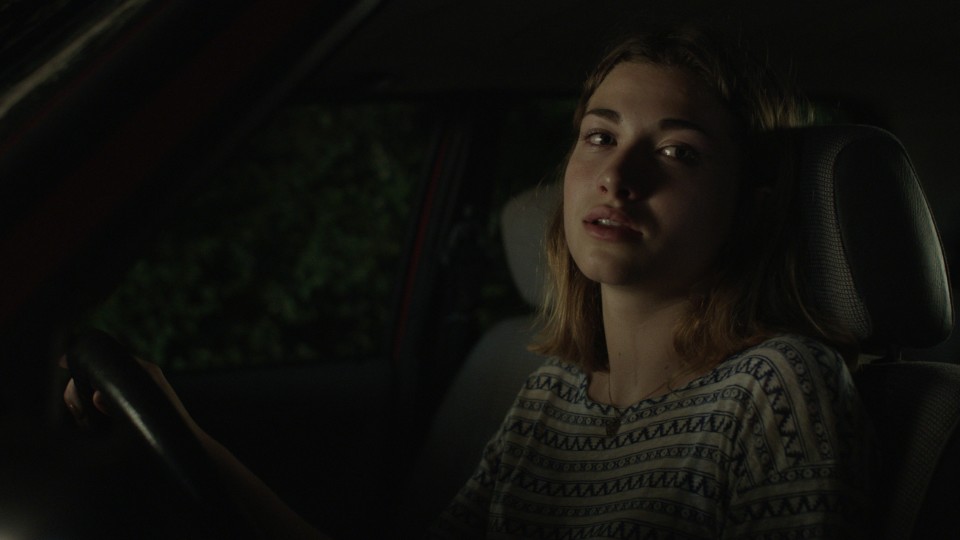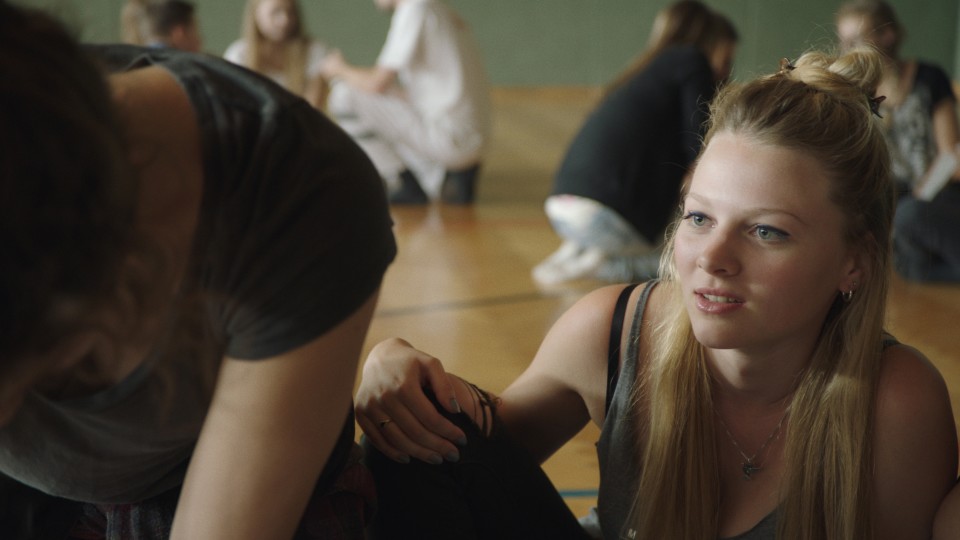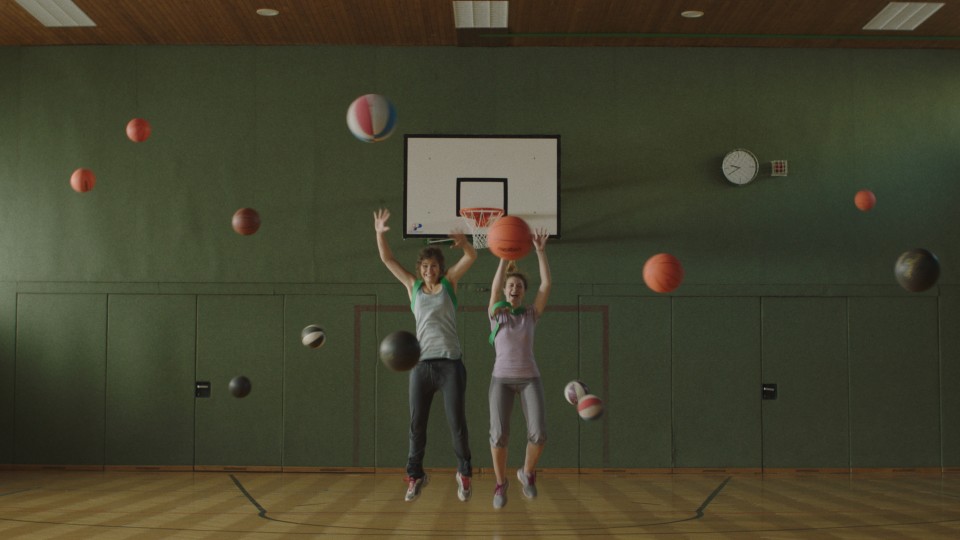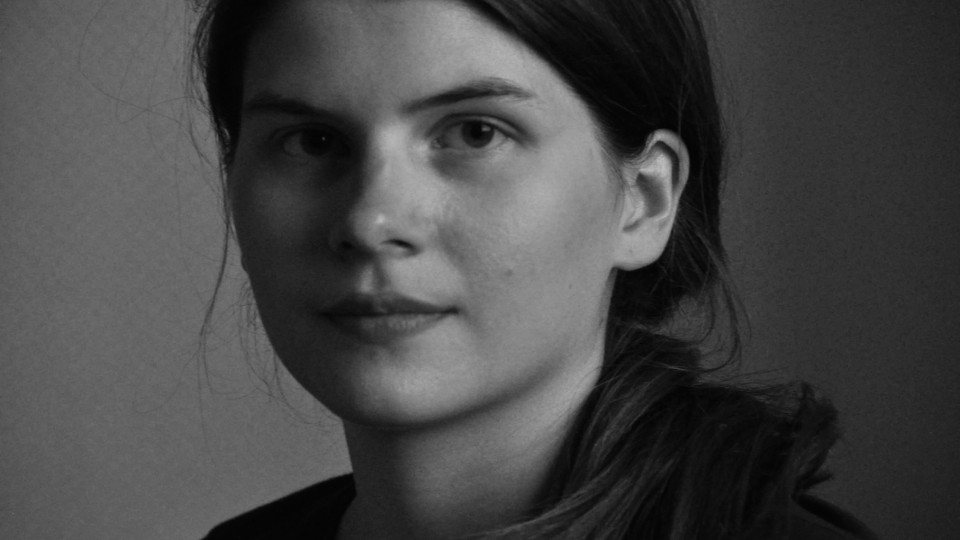In Seventeen Monja Art plunges into the emotional rollercoaster ride of a period in life characterized by unlimited opportunities and
missed chances.
What's the attitude of someone in her early 30s to the spirit of being 17? How close and how distant did you feel to this
age as you were working on the project? And what appealed to you about dedicating yourself to this coming-of-age production?
MONJA ART: I had been wanting to work with young people for a long time. Previously I had made a documentary film with young girls (Forever Not Alone), but in the process I realized that I'd really like to create my own world. I don't feel very close to the age of 17 now,
and neither do I feel any regret at not being 17 any more. But I do think this period in your life is one of the most interesting
ones. It's a phase full of courage and energy and a lack of inhibitions, and the slightest event can very quickly turn into
a drama. You become aware that you can completely let yourself go, and at the same time you believe nothing can possibly work
out if you're unable to be together with a certain person. It's a genuine rollercoaster of emotions. I'm very drawn to the
manic-depressive aspect of this period. I think though, that as a result of social media this phase in life has become more
difficult than it was when I was that age. Secret emotions can very quickly be exposed or ridiculed on Facebook.
Life is enormously open for people at this phase of their lives. Decisions lie ahead, but they don't have to be made yet.
This is most clearly expressed in the film via sexuality; there is the process of advancing and retreating between two people,
but alongside that there is also the freedom to decide which gender people are attracted to. The space between the genders
appears to be completely open, without value judgements or restrictions on movement.
MONJA ART: I would like to believe in that free space at every phase of life, not only during youth. I definitely didn't want to make
a coming-out film. Everything should be possible, if you're prepared to try it. And the process of awakening is a very important
subject for me. The film refers to Paula’s awakening at the beginning, and at the end she also awakens, in a figurative
sense. It's the closing of the parentheses. Of course, sexual awakening is an important aspect of this age, but I also wanted
to talk about awakening to the realization that there is no going back. And no going back to youth, either.
You have located the story at an age of almost unlimited opportunities, and yet Seventeen is, among other things, the tale of missed chances. What is it that interests you about this area of conflict, which after
all remains an aspect of life in general?
MONJA ART: A very great deal. For me, longing is an important subject, as is the idea of "almost living". You could have spent your
whole life with one person, but it didn't work out – perhaps due to a very banal reason. This is also a theme of my next
film project, Mia Carla, which I'm holding auditions for at the moment. A relationship can develop from very random factors, or fail to develop.
Every decision that’s made is, in the final analysis, also an annihilation of all other possible choices.
Images of reality and fantasy merge seamlessly in Seventeen and aren't openly differentiated in visual terms. One glides into the other, and the viewer is left briefly unsure which
world is being portrayed at the moment.
MONJA ART: I think that's also how life is. I definitely wanted to enable the sexuality between Paula and Charlotte to exist only in
the imagination. Precisely because that's often how it is in life as well. In the end, life is only this one moment; the rest
merely exists in our heads. "What makes experiences I've had more real than my imagination?" is a question which constantly
preoccupies me. The imagination can be just as real.
Did you approach the filming with a very open concept of individual scenes?
MONJA ART: My approach varies a lot. When I was at the Film Academy I made a film with children, and I stuck to the script 1:1. That
was the wrong decision, because too much happened on the set by chance that would have been more exciting. In the documentary
film Forever Not Alone we didn't intervene at all. As a result of those two experiences I came to the conclusion that I would like to combine both
approaches, which was also appropriate with young non-professional actors. So I wanted to make a feature film that I had written,
featuring characters and a world I had created, but with the possibility of being open during rehearsals – and on the
set itself – for influences that arose at that particular moment. The storyboard, and consequently the sets, were developed
very precisely. But within that context there was the opportunity for improvisation in terms of dialogue. We only improvised
during rehearsals; once we were actually filming the dialogue was almost entirely fixed. In scenes with more than three people
in shot the dialogue was always written out in advance.
Using a cast consisting almost entirely of 17-year-olds means working with people who are acting for the first time. What
was important to you during the auditions? How did the actors cohere into a group in the school class?
MONJA ART: Over a year and a half we auditioned about 500 young people. In the end I had no doubts: I think they're all perfect for
the parts. During the decisive last round of auditions I always invited two people into the room together and gave them the
36 Questions That Make You Fall in Love from the Internet, so they could put the questions to each other. There were some very emotional moments. And during those
last call-backs it became crystal clear to me who would be appropriate for which part.
Was there then a long period of preparation before the actual filming?
MONJA ART: We rehearsed for two days, during which we went through all the emotional and intimate scenes. That wasn't much time, but
in my view it was enough. Since we were filming in Lower Austria, we were all in the same hotel, and if necessary we were
able to go through the most important scenes together again the day before filming. For the kissing scene I wanted the first
genuine kiss to take place actually while we were filming, not in rehearsal. On the whole there were relatively few takes.
One exception was a view that didn't actually make it into the film, which involved 25 takes. The scene about learning French
for the contest, for example, we filmed in a spurt of 17 minutes, and I found that completely successful. Of course only part
of it is in the film.
That presumably also means a lot of very crucial decisions were made during the editing process?
MONJA ART: The first edit was three hours 15 minutes long. I would have liked that version as well. But we had to shorten it. First
I edited with Claudia Linzer, and then in the second phase I did the work myself. I very much enjoy editing, and I think you
write the last version of the screenplay at the editing desk. Since I had also written the screenplay, I felt it would be
consistent for me to "write" the last version during the editing process as well. I feel that I have now exhausted the subject
of coming-of-age. In this film I've said what I wanted to about being young. I think Seventeen presents a very diverse view of youth, which we otherwise known mainly from series. And in Seventeen we encounter very varied characters, and also very strong female characters. I think for young girls in particular there
still aren't enough strong female role models. Seventeen changes that situation a little bit.
Apart from the disabled, non-speaking father and a neurotic teacher, there are hardly any adults in Seventeen. Why is the adult world so absent?
MONJA ART: Paula's father totally withdrew into himself after the death of his wife. He doesn't want anything more to do with the outside
world. On the other hand Florian Tangler, the French teacher, is somebody who would very much like contact with the world
but doesn't know how to set about it. The two adult characters in the film differ from one another in terms of their awkwardness.
Apart from them I largely managed without adult characters, because I think young people are focused so much on themselves
and their problems and passions that the adult world surrounding them isn't particularly relevant.
Under the easy surface there is some indication that even an apparently carefree life involves burdens. Paula, for example,
is growing up without a mother and with a disabled father. The youngsters become aware that the next few years will entail
major decisions which are inevitable.
MONJA ART: A major turning point is approaching, and there's no going back from that. I can remember my own school days. For years I
was frightened about the school leaving exam, not because I was worried about how well I would do but because I knew something
would come to an end then; something would be lost that could never be recovered. For me it was like death. I do think saying
farewell begins early in life.
The French lessons and the competition focus on two works of French literature. Do you have any particular affinity with French?
MONJA ART: Not really. We read Madame Bovary at school, and it was an incredibly significant book for me at that time. Even today I often think about it. That experience
is also the reason why Paula is good at French in Seventeen. I wanted her to be good at a foreign language, and the fact that it turned out to be French is connected with that book.
Marcel Proust makes an appearance during the language contest. I mention him because I think what he says about longing is
so appropriate for this film. Also the fact that he says it's better to read guidebooks then go on a real journey. That has
something to do with illusion and fantasy. In real life many things lose their magic. Longing dies on the threshold of fulfilment.
Interview: Karin Schiefer
January 2017
Translation: Charles Osborne

